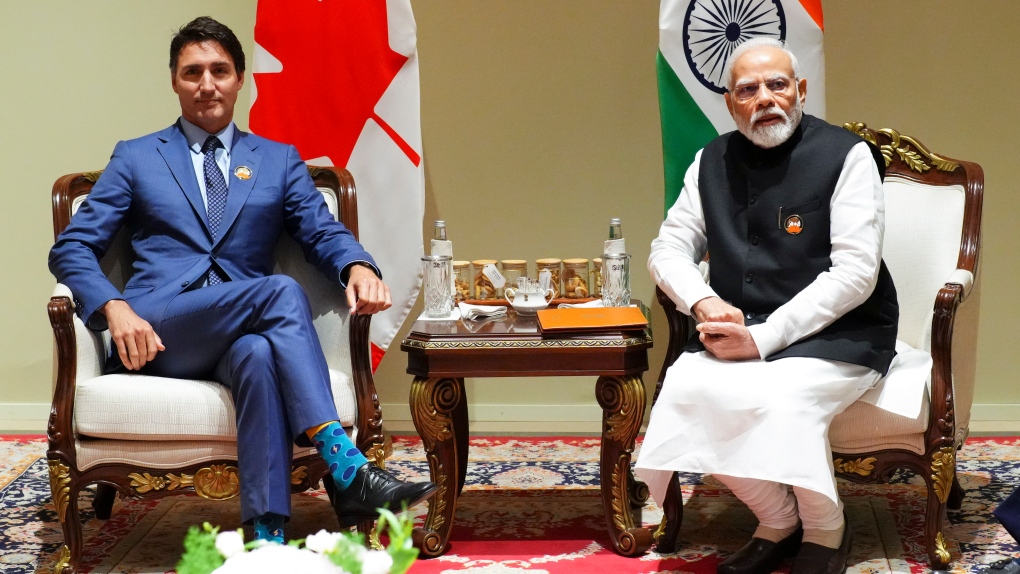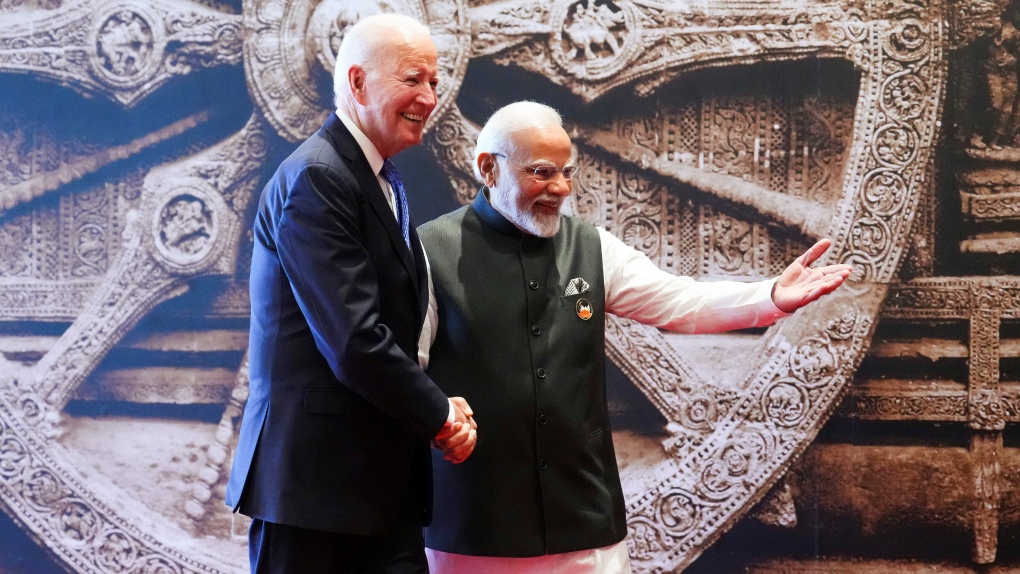As a U.S. presidential candidate in 2019, Joe Biden vowed to make Saudi Arabia "pay the price, and make them, in fact, the pariah that they are" over the killing of Washington Post reporter and Saudi Arabia critic, Jamal Khashoggi.
However, in the aftermath of the 2020 presidential campaign, U.S. President Biden was roundly criticized by human rights activists for meeting with Saudi prince and heir to the throne, Muhammad Bin Salman. The infamous fist-bump between the U.S. Commander-in-Chief and the mastermind behind the killing of the noted journalist suggested Saudi Arabia’s “pariah” status was nothing more than campaign rhetoric.
Since that moment, President Biden has continued to pay a political price for his acquiescence to Riyadh over the vile butchery enacted on a U.S. citizen. Now, it is deja vu all over again, and President Biden stands at the precipice with a chance to get it right. This time, he can stare down a grave injustice by standing side-by-side with the United State’s most ardent ally and neighbour to the north.
Canada’s prime minister, Justin Trudeau, inflamed tensions with recent accusations that the alleged assassination of Hardeep Singh Nijjar, a Sikh leader and member of a movement to create an independent Sikh homeland, was carried out by individuals with ties to India’s government. Trudeau told the House of Commons that investigators were pursuing “credible allegations” linking Niijar’s killing to agents of the Indian government.
In the aftermath of this stunning claim by Trudeau, tensions have ratcheted up between the two countries. The expulsion of diplomats; counterclaims and accusations; as well as snubs and personal attacks have ensued. The imbroglio has ensnared multiple nations including the United Kingdom and the United States, among others.
 Canadian Prime Minister Justin Trudeau takes part in a bilateral meeting with Indian Prime Minister Narendra Modi during the G20 Summit in New Delhi, India on Sunday, Sept. 10, 2023. (Sean Kilpatrick/The Canadian Press via AP, File)
Canadian Prime Minister Justin Trudeau takes part in a bilateral meeting with Indian Prime Minister Narendra Modi during the G20 Summit in New Delhi, India on Sunday, Sept. 10, 2023. (Sean Kilpatrick/The Canadian Press via AP, File)
Several members of the Five Eyes, an intelligence-sharing network that includes the U.S., the U.K., Canada, Australia and New Zealand, raised the June killing with Prime Minister Modi. Still, the growing conflict places the United States in a foreign policy vice grip.
Canada is one of the United States’ largest trading partners and the neighbouring states have enjoyed a more-than-century-old alliance. Just recently, the Canadian government hosted the Bidens during an official state visit. Alternatively, President Biden has been making equally grand and spectacular overtures to India including hosting PM Modi with an official state visit in Washington. India’s growing population and rising GDP are attractive to the Biden administration. The White House envisions a relationship where New Delhi is an effective counterweight to Beijing.
 U.S. President Joe Biden is officially welcomed to the G20 Summit by Indian Prime Minister Narendra Modi in New Delhi, India on Saturday, Sept. 9, 2023. THE CANADIAN PRESS/Sean Kilpatrick
U.S. President Joe Biden is officially welcomed to the G20 Summit by Indian Prime Minister Narendra Modi in New Delhi, India on Saturday, Sept. 9, 2023. THE CANADIAN PRESS/Sean Kilpatrick
Much is at stake and Washington runs the risk of alienating a growing economic power and potential partnership that could tip the balance in its ongoing Cold War with Beijing. Nevertheless, the Nijjar killing provides Biden with an opening. The opportunity to restore U.S. moral authority and credibility as a beacon for human rights should prove too tempting to overlook. The democracies of the West have historically stood as a bulwark against authoritarian regimes across the globe. Taking a stand against this latest alleged violation of national sovereignty sends a clear message that Western powers will not be blinded by the lure of economic gain.
India’s ruling party has long expressed deep misgivings about the proliferation of Sikh separatists in Canada. Their outspoken calls for independence has been a constant source of tension between Ottawa and New Delhi. In March, Modi’s government summoned the Canadian high commissioner, its top diplomat in the country, to complain about Sikh independence protests in Canada. The brazen killing of a Sikh separatist leader months later has now led to a standoff with no end in sight.
The sovereignty of nation-states is sacrosanct. International agreements and boundaries are enacted and erected to ensure the protection and security of citizens within their respective borders. If this extrajudicial killing is proven to have ties to New Delhi, it tears at the fabric of the very sovereignty of the Canadian government and its people. In fact, in many ways it can be seen as tantamount to war. Therefore, Justin Trudeau must respond with the force, outrage, and strength equal to that meted out to an unsuspecting Canadian citizen.
INDIA'S GROWING POWER
No doubt, Trudeau and Biden are feeling tremendous pressure with every move in this high-stakes diplomatic showdown. India is rapidly becoming a rising power on many fronts. The South Asian nation has surpassed China in terms of population and its GDP is now greater than that of the United Kingdom.
New Delhi is exuding that strength in ways, big and small. Its recent hosting of the G20 is evidence of the growing influence wielded by the rising power. The suitors for various partnerships and agreements are long and many are hesitant to choose a side despite the growing concerns over Modi’s incessant crackdowns on the opposition. India’s rising financial might is shifting the geopolitics, making it increasingly difficult for global leaders, including Biden, to rally to Canada’s defence in any real and tangible way.
A recent BBC report described the situation in grim terms for Canada’s PM. “…Mr Trudeau has appeared to be left largely on his own as he goes toe to toe with India, one of the world's fastest-growing economies, with a population 35 times bigger than Canada's…perhaps the most deafening silence came from Canada's southern neighbour, the United States. The two countries are close allies, but the US did not speak up with outrage on Canada's behalf.”
The report goes on to quote Christopher Sands, director of the Canada Institute, describing the situation as “…a moment of weakness [for Trudeau].” As the prime minister stands isolated, alone, in the cold, President Biden should see his most steadfast ally not as weak or shut out but with resolve and resoluteness. This is Biden’s moment; to change the narrative; be the bulwark the West has always been. The neighbour to the north should not have to stand alone. Biden should meet the moment. A simple fist-bump is a good start.
Eric Ham is a bestselling author and former congressional staffer in the U.S. Congress. He served as a contributor to TheHill.com and The Washington Diplomat. He resides in Washington, DC.









































